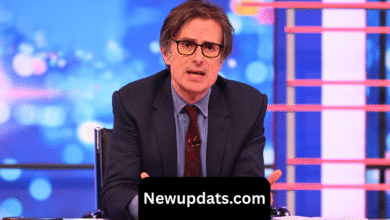Andy Kaufman Last Words remains one of the most enigmatic figures in the history of American entertainment. A performer who blurred the lines between comedy, performance art, and reality, Kaufman was never easily defined. From his bizarre alter ego Tony Clifton to his wrestling antics with women, he continuously challenged the expectations of what a comedian was supposed to be. Even after his death in 1984, fans and conspiracy theorists alike continued to debate his life, his legacy, and even whether his death was real. Central to the intrigue surrounding Kaufman’s final days are the mysterious and highly speculated “last words” he may or may not have spoken.
Andy Kaufman’s Final Days
Diagnosed with a rare form of lung cancer, Andy Kaufman spent the last months of his life in a manner consistent with the rest of his existence—secretive, controversial, and layered in ambiguity. Kaufman was a non-smoker, which made his diagnosis even more surprising. In typical Kaufman fashion, many around him, including close friends and family, initially believed his illness was another elaborate prank.
In the months leading to his death, Kaufman sought alternative treatments for his cancer. He traveled to the Philippines to undergo a form of psychic surgery, a procedure considered pseudoscientific and lacking medical validity. He continued to explore holistic and unorthodox remedies while keeping many of his fans and even colleagues in the dark about the Andy Kaufman Last Words severity of his condition.
The Conflicting Accounts of His Final Words
Due to the secrecy surrounding his final days, there are conflicting reports about Kaufman’s last words. Some claim that he whispered something to his close friend Bob Zmuda, while others assert that he died quietly without uttering any final statement. The lack of a definitive answer has only fueled public fascination.
Bob Zmuda, Kaufman’s longtime friend and writing partner, has offered various accounts of Kaufman’s final days over the years. In some interviews and writings, Zmuda suggests that Kaufman’s last moments were peaceful but layered with a quiet defiance, almost as though he was enjoying the ambiguity of his condition. Zmuda has stated that Kaufman was fully aware of the mythos he had created and was deeply aware of how his death would be interpreted.
In one version, Zmuda claimed that Kaufman’s last words were a whispered joke, saying something like “this’ll get them talking.” However, this quote has never been corroborated by anyone else present, and many believe that it may have been a fictionalized account designed to preserve Kaufman’s mystery. Others present at the hospital, including Kaufman’s family, have never confirmed this version of events.
The Mythology Surrounding His Death
The mystery surrounding Andy Kaufman’s last words is part of a larger mythology that surrounds his death. Almost immediately after his passing was announced, rumors began circulating that Kaufman had faked his own death. These rumors were not without precedent—Kaufman had often expressed a fascination with the idea of faking his death as the ultimate prank.
In previous interviews, Kaufman had alluded to the idea of disappearing for a decade and then returning, just to observe the reactions. His obsession with hoaxes, deception, and boundary-pushing art fueled the speculation. For some fans, the lack of a public funeral and the tightly controlled information about his passing added more fuel to the fire.
This mythology has made it nearly impossible to pin down the exact nature of Kaufman’s final moments. Every piece of information—every supposed quote, every photograph, every story told by a friend—has been scrutinized through the lens of disbelief. Were his last words truly spoken on his deathbed, or were they part of a larger narrative Kaufman constructed to carry on beyond his physical life?
Perspectives from His Family
Kaufman’s family has generally maintained a more grounded perspective. His father, Stanley Kaufman, confirmed that Andy died of lung cancer and described his final days as painful but dignified. According to the family, Andy did not make any grandiose statements or cryptic jokes in his final moments. Instead, he was surrounded by loved ones, expressing gratitude and warmth.
While his father and siblings respected Andy’s career and his often unconventional behavior, they were also more practical in their approach. They didn’t buy into the idea that he had faked his death or that his final words were part of an act. Their portrayal of Andy in his last moments contrasts sharply with the accounts from others like Zmuda, but this only deepens the overall mystery.
Media Sensation and Public Reaction
When news of Andy Kaufman’s death reached the public in May 1984, it was met with disbelief. Some fans thought it was another one of his elaborate gags. The media coverage only fueled this disbelief, with various outlets speculating on the authenticity of his death and the possibility that he might return one day.
In the months following his death, tabloids and entertainment news programs dedicated significant coverage to the mystery surrounding his passing. Talk shows invited guests who claimed to know the “truth” about Kaufman’s last words or secret whereabouts. The fervor reached such a point that, years later, when someone impersonating Tony Clifton made a public appearance, fans were quick to speculate that Kaufman had returned.
The uncertainty surrounding his last words became a point of pop culture fascination. People weren’t merely interested in what he might have said—they were invested in the idea that whatever he did say had deeper meaning, perhaps a clue or a final punchline. This obsession was amplified by the release of films and documentaries about Kaufman’s life, including the biopic Man on the Moon, in which Jim Carrey portrayed Kaufman.
The Impact of “Man on the Moon”
The 1999 film Man on the Moon reignited public interest in Andy Kaufman’s life and legacy. The film depicted Kaufman as a genius-level performance artist who could never quite turn off the show, even in the most personal moments. His final scenes in the movie were portrayed with emotional weight, showing a man grappling with mortality while still toying with the expectations of his audience.
Jim Carrey, who famously immersed himself in the role to the point of psychological strain, later participated in a documentary titled Jim & Andy: The Great Beyond. The documentary explored not only Carrey’s extreme method acting but also the deep, surreal impact Kaufman had on those around him. Carrey’s portrayal and subsequent reflections gave rise to new questions about Kaufman’s last words. While the film offered a cinematic representation, it did not claim to deliver historical accuracy, yet it influenced public perception significantly.
The Continuing Mystery
To this day, Andy Kaufman’s final words remain a mystery. Whether he uttered a witty remark, made a cryptic statement, or simply passed away in silence is something we may never know for certain. The conflicting accounts, deliberate obfuscation, and lack of concrete evidence ensure that his last words remain part of his legend.
Even now, decades after his death, Kaufman’s influence persists in the world of comedy and performance. He is celebrated for pioneering a form of meta-comedy that required audiences to question the reality of what they were seeing. In that sense, the ambiguity of his final words is fitting. It leaves room for speculation, for interpretation, and for the kind of intellectual engagement Kaufman always sought from his viewers.
For some, the question of his last words is less about discovering a literal truth and more about continuing to engage with the spirit of his work. Just as Kaufman turned his entire life into a kind of ongoing performance, so too might his death—and the words he may have spoken—be considered part of that performance.
Philosophical Reflections on Last Words
Throughout history, the final words of public figures have held symbolic weight. They are often interpreted as summations of a person’s beliefs, philosophies, or sense of humor. In Kaufman’s case, any final statement he may have made would be subject to the same expectations—only amplified by his penchant for trickery and satire.
If Kaufman did indeed whisper something like “this’ll get them talking,” it would reflect his lifelong desire to provoke thought and challenge assumptions. If he passed quietly, surrounded by family, it might reveal a more grounded side of a man so often seen as a chaotic genius. Either way, his final moments are part of a much larger artistic canvas that he began painting long before his diagnosis.
Influence on Future Generations
Kaufman’s unique approach to comedy and performance has influenced generations of artists, comedians, and entertainers. Figures like Sacha Baron Cohen, Tim Heidecker, Eric Wareheim, and even Jim Carrey himself have cited Kaufman as a major influence. These artists, like Kaufman, often inhabit characters, blur the lines between fiction and reality, and test the boundaries of audience comfort.
For these performers, Kaufman’s last words—or the absence thereof—serve as a lesson in the power of ambiguity. Rather than providing closure, Kaufman left a door open for continued discussion, speculation, and creativity. In this way, he continues to perform, long after his physical body is gone.
Conclusion
Andy Kaufman’s last words, whatever they may have been, are emblematic of a life dedicated to blurring the lines between reality and performance. They are not simply a detail of his biography—they are a continuation of his art. Whether he spoke a final joke, whispered a cryptic phrase, or passed in silence, the ambiguity of his parting moment is perfectly aligned with the legacy he left behind.
The fascination with Andy Kaufman’s final words reveals as much about his audience as it does about the man himself. In their search for meaning, fans are participating in the very kind of performance that Kaufman so masterfully constructed. As long as people continue to ask questions about his life and death, Kaufman’s influence—and his performance—endures.
FAQs
Was Andy Kaufman really sick or was it a prank?
Andy Kaufman was diagnosed with a rare form of lung cancer in 1983. Despite his history of elaborate hoaxes, his death in 1984 has been confirmed by family and close friends.
What were Andy Kaufman’s actual last words?
There is no verified record of Kaufman’s last words. Conflicting accounts suggest he may have whispered something cryptic, but nothing is definitively confirmed.
Did Andy Kaufman fake his own death?
While many conspiracy theories suggest he did, Andy Kaufman Last Words there is no credible evidence to support this. His family and medical professionals have verified his death.
Why is there so much mystery around his death?
Kaufman’s career was built on deception, performance, and blurring reality. This led many to believe his death could be part of an elaborate act.




